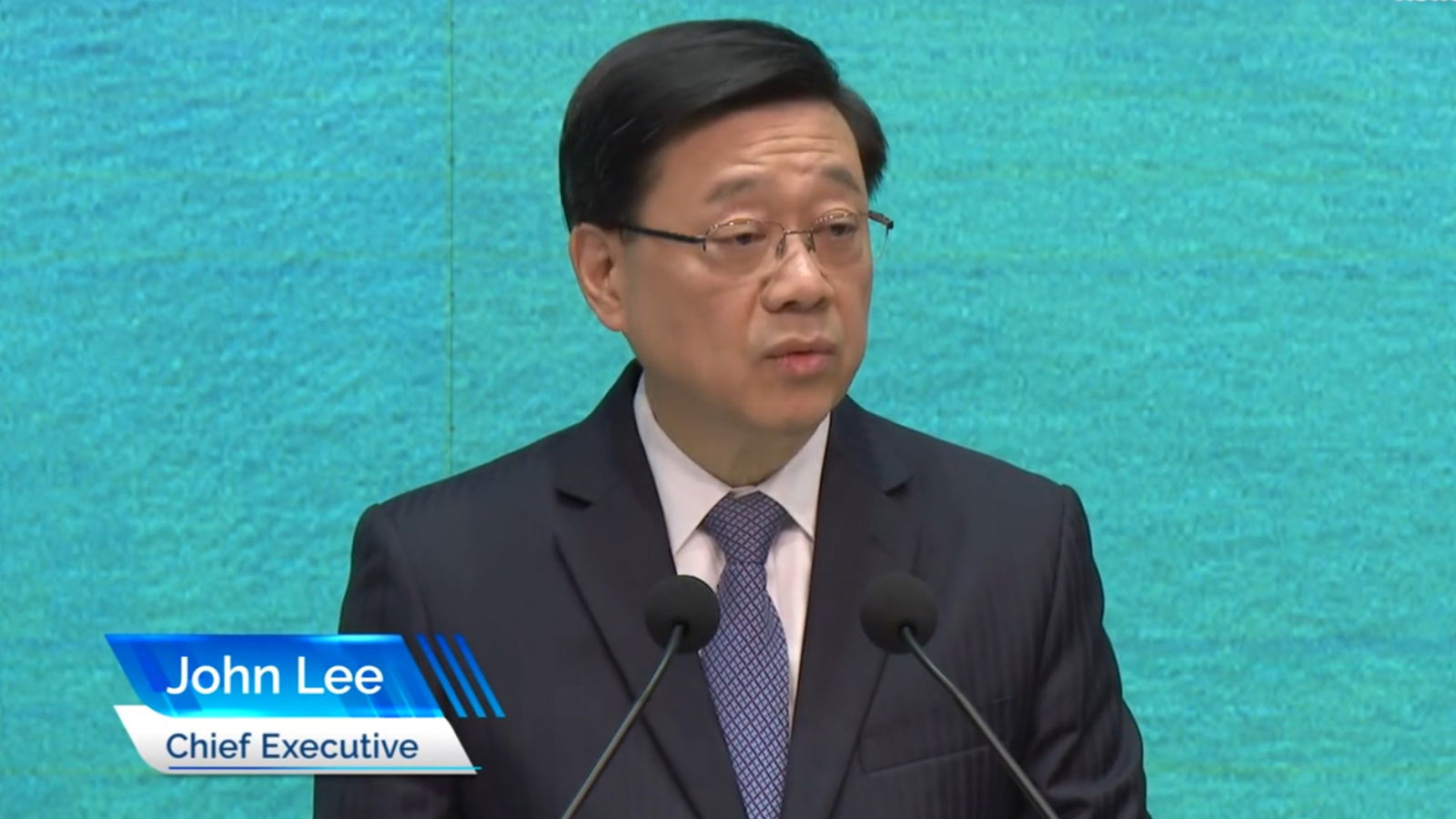share on
Chief Executive John Lee said the SAR Government will meet the challenges through accelerating industrial transformation, developing technological innovation, and more strategies.
In the face of the recent imposition of US tariff measures, Hong Kong’s Chief Executive John Lee has outlined a seven-pronged strategy to tackle the challenges that may arise, including measures such as accelerating industrial transformation, developing technological innovation, and more.
At a media briefing prior to the Executive Council meeting on 8 April 2025, Lee said the US has announced the imposition of reciprocal tariff on trading partners around the world, including an additional 34% tariff on Hong Kong products. Together with the 20% tariff announced earlier, the total tariff imposed on Hong Kong products is now up to 54%. The tariffs affect many countries and regions worldwide with huge tax rate increases covering a wide range of goods, bringing considerable risks and uncertainties for the global market.
As a highly outward-looking international free port, Lee noted that Hong Kong's re-export and logistics industries will face pressure. Foreign trade companies, especially SMEs, and cross-border e-commerce will inevitably be affected in the short term.
In response, the Chief Executive said that the SAR Government will strengthen its strategy in following seven areas.
1. Fully seize the opportunities presented by China’s development, actively integrate into the national development, and strengthen the domestic sales expansion of products across various provinces and cities in the Mainland.
Moreover, take full advantage of the Mainland & Hong Kong Closer Economic Partnership Arrangement (CEPA) to attract more foreign companies to set up operations in the SAR to capitalise on the benefits of “one country, two systems”.
2. Strengthen international exchanges and deepen regional ties and cooperation.
Hong Kong also plans to sign more free trade agreements with countries and economies. The SAR Government is currently negotiating investment agreements with Saudi Arabia, Bangladesh, Egypt, and Peru, and will continue to push for Hong Kong’s early accession to the Regional Comprehensive Economic Partnership (RCEP).
Meanwhile, the Government has plans to open Economic and Trade Offices (ETOs) in Malaysia and Saudi Arabia. InvestHK and the Hong Kong Trade Development Council have also set up offices in Cairo, Egypt, Izmir, Turkey, and Cambodia respectively to actively explore new economic and trade opportunities.
3. Accelerate industrial transformation by developing a high value-added, innovation-driven economic model, expedite the establishment of a high value-added supply chain service hub, and promote the growth of digital trade and a headquarters economy.
4. Intensify efforts to develop technological innovation, attract top-tier talent, and further strengthen Hong Kong’s competitiveness.
5. Vigorously advance international financial cooperation to attract investments and capital.
6. Seize the world’s major trend of geographical diversification, proactively attracting foreign companies and capitals to establish in Hong Kong.
7. Continue to provide various types of support to help Hong Kong enterprises cope with the impact of tariff and external challenges, including:
- Coordinate with the banking sector, through the Hong Kong Monetary Authority (HKMA), to assist SMEs in coping with their liquidity needs;
- Provide export credit insurance support to enterprises via the Hong Kong Export Credit Insurance Corporation;
- Support Hong Kong enterprises in developing their brands, upgrading and transforming their business, as well as expanding into new markets, particularly in emerging markets in the 'Global South' such as Southeast Asia and the Middle East, through the BUD Fund (Dedicated Fund on Branding, Upgrading and Domestic Sales);
- Launch a funding scheme to support enterprises in accelerating their digital transformation and seizing e-commerce opportunities; and
- Assist enterprises in better understanding the market and managing risks.
Photo / news.gov.hk
share on


